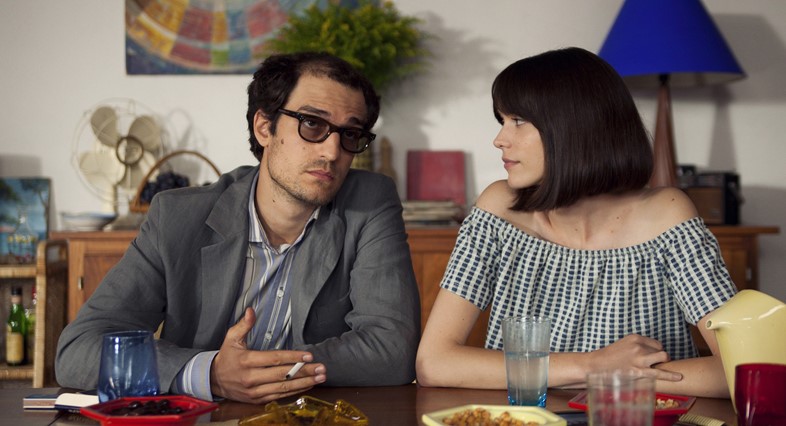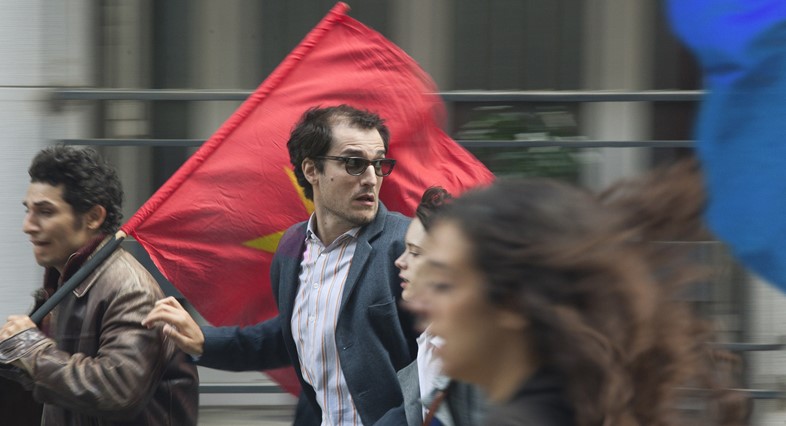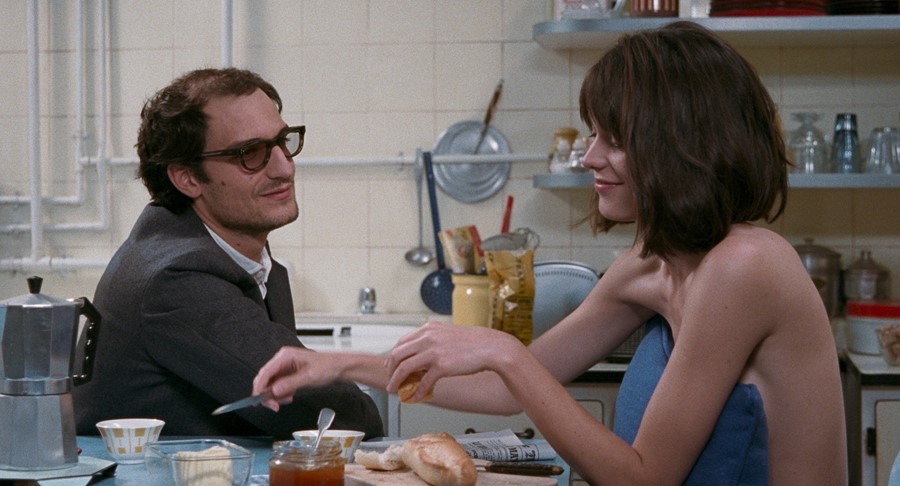As the hotly anticipated Le Redoutable screens at London Film Festival, Douglas Greenwood writes about the legend of its titular character and his love Anne Wiazemsky
“Mozart died at 35. He had the right idea,” Jean-Luc Godard says in Le Redoutable, a new biopic about his life. Almost 60 years on, it’s safe to say that the French director has given his life to cinema; he’s now approaching 90, and the renowned pioneer of Nouvelle Vague continues to challenge the way critics and his contemporaries see the medium.
Ever since his bourgeois beginnings in Paris’ affluent 7th arrondissement, Godard’s life has always enchanted cinephiles, thanks in part to how elusive he has been since the turn of the century. But in the late 1960s, at the tail-end of a decade of lauded, lovable films, Godard recast himself as one of France’s most vocal political activists. This would inevitably come to permeate his films, as well as the relationships that seemed to both inspire and hinder the direction he wanted to take his work in. Love, to Godard, seemed to be a creative endeavour too.
The 12 years he spent with the captivating Anne Wiazemsky – an actress he met while she was filming Robert Bresson’s Au Hasard Balthazar, before marrying her a year later – were by turns tumultuous, comical and tragic, making them perfect material for a debut biopic. After all, Wiazemsky, who would come to appear in some of his most anarchic films, like the student protest drama La Chinoise and the absurd, murderous black comedy Weekend, was the closest person to Godard during his fall from grace; a time where he wasn’t a beloved artist but rather a creatively confused, divisive filmmaker living in riotous, late-60s Paris.

Le Redoutable, the biopic that came to be, was inspired by Wiazemsky’s own revealing memoirs. Titled Un An Après (or One Year After), it was those telling stories of her life with Godard that Oscar-winning director Michel Hazanivicius would beg her to adapt, with French heartthrob Louis Garrel and bilingual Brit Stacy Martin in the lead roles. She would agree, but only on one condition: this story had to be told with humour.
Kitsch, tongue-in-cheek and brimming with pastiche, Le Redoutable nods strongly to the work of Godard. Its director Michel Hazanavicius is the most dedicated kind of super fan. From the use of brilliant primary colours in Godard’s apartment, to the looming voiceovers and breaking of the fourth wall, this is a film that uses Godard’s most famous hallmarks to tell his own story with a sugary hit of wit and charm. Nonetheless, it straddles the fine line between being a shining homage and a scathing portrayal of France’s most famous film director.
Given that the film is adapted from Wiazemsky’s words, we see things from her perspective as both a collaborator and a partner. In the film, Godard appears to be pedantic, controlling, passionate and self-absorbed. Wiazemsky watches on as he becomes more engaged in the social unrest of May 1968 in France – a fortnight-long strike that practically shut down the country – and less interested in those around him. As she grows eager to escape from the clutches of her often ignorant husband, one who regularly tries to stop her from forming her own path, Godard grows less imaginative and more politically attuned. It’s reflective of the films he was making at the time, too: didactic, motivated by revolution, and wilfully ignorant of how critics may have received them.

Thankfully, Godard’s anti-bourgeois approach was somewhat short-lived. An egoist – as legendary directors tend to be – Godard eventually learned that democratising something like filmmaking was a bad way to do things. Regaining control, he’d go on to have a long and successful career, and is still working today. After their divorce, Wiazemsky continued to act in French cinema, dabbling in writing screenplays and novels in her later years too. Just this month she passed away, leaving a long line of brilliant work for newfound admirers and old fans to adore, and having had the chance to see her life with Godard recreated on screen.
Today, so many directors look back upon the seismic filmography of Jean-Luc Godard when crafting their own work. From his debut feature Breathless to the playful and imaginative work of Bande à Part, modern auteurs from Quentin Tarantino to Xavier Dolan have found inspiration in his spirited, experimental approach to movie-making. Rumour has it that Godard is currently somewhere in a Middle Eastern desert shooting his anticipated follow-up to the Cannes premiering, prize-winning Goodbye to Language. People said that it may have shown up at this year’s festival, but we were given Le Redoutable instead; an endearing, worthy replacement that captures the melodrama and genius of Godard and Wiazemsky brilliantly.
Le Redoutable is out now.
